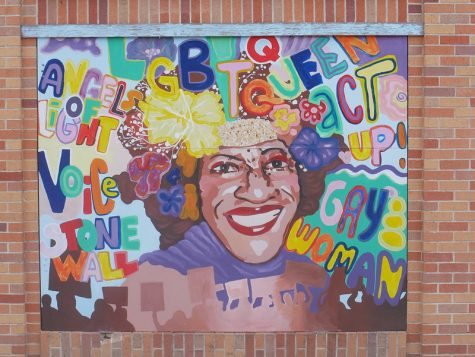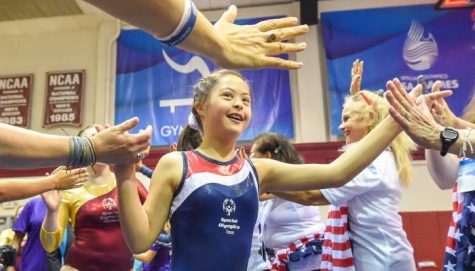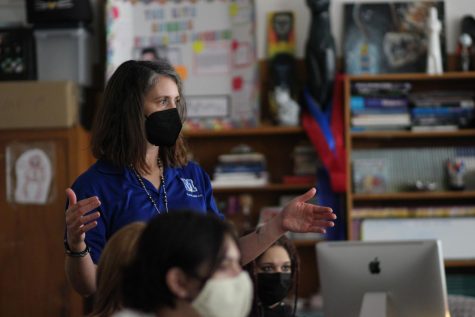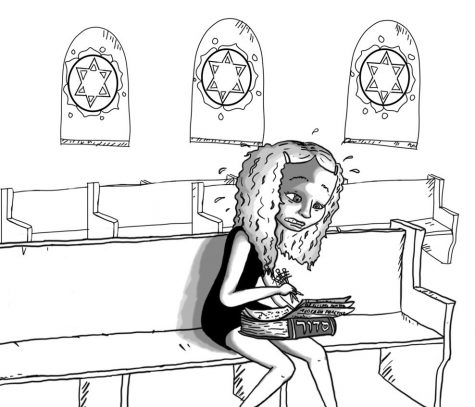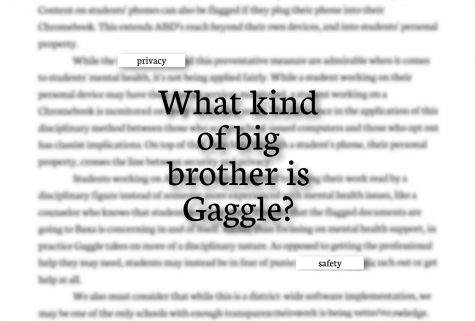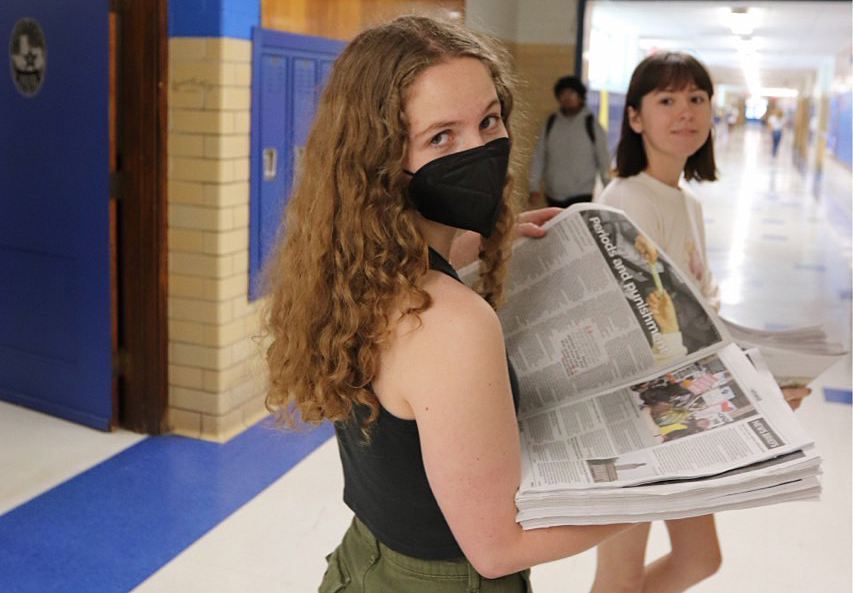Alysa Bijl-Spiro: NSPA Writer of the Year Portfolio
NSPA Writer of the Year Portfolio
Co-editors in chief Alysa Bijl-Spiro and Madelynn Niles hit the hallways to distribute the April 2022 edition of the Shield, their penultimate edition as editors.
In his 1967 novel The Master and Margarita, Mikhail Bulgakov writes three brilliant words: manuscripts don’t burn. Of course, while Bulgakov is referring to an oppressive Stalinist regime trying to censor his work, I’ve come to interpret this idea in a slightly different way: what I write now is going to be out in the world forever. So it better be good.
But what makes good journalism? Truth? This year, as I tackled issues and conflicts much larger than myself, I learned that “the truth” is rarely as black and white as I’d once thought. When writing about Gaggle, a third-party software system that scans student documents for key “threat words” without them knowing, I was initially torn between whether the system was an invasion of student privacy or a lifeline for students in need. As I continued to work on that story, I started to see that there wasn’t an absolute truth about whether the system was good or bad; instead, I became even more aware that journalism is a world that often works in the gray areas.
How else can we define good journalism? “Objectivity” is a word often thrown around in the newsroom, however, this year, I found myself continually grappling with the questions of what deserves coverage, whose viewpoints to showcase and which stories to tell. As I worked on a story about the Critical Race Theory (CRT) debate in Texas, I often questioned whether presenting certain viewpoints, especially harmful ones such as Ted Cruz insisting CRT was as racist as the Ku Klux Klan, was in itself a validation of those views and ideas. Despite my initial hesitancy, I ultimately included Cruz’s perspective, realizing that dialogues between sources are often more impactful to readers than just a stream of one-sided arguments.
While truth and objectivity can certainly serve as key tenants for good journalism, by focusing on them alone, I believe you overlook the most important part of being a journalist: serving the very people you’re writing about. My favorite stories this year were the ones closest to humanity, the ones that sent ripples through the waves of readers, and the ones that I’d like to believe made a difference.
An example close to home is my editorial which called on our school to be more respectful of its Jewish community by consciously not scheduling exams during the High Holidays. While the editorial was inspired by my own unfortunate occurrence, after it was published, other Jewish students at my school started to voice their similar experiences. Hearing their stories, I realized that this collective outcry was much more than just annoyance about exams on Yom Kippur, but stemmed from the larger issue of Jewish students often feeling overlooked at my school.
Sometimes the impact of a story is more subtle, seen instead through the smiles on the lips of people reading the story. From the moment I began my interview with Sabine Collins about her experience at the Special Olympics — something our publication had failed to cover two years ago — I knew my job as a writer was simply to transfer a fraction of her real-life magic to the page, allowing people to see past her disability and recognize the unsung hero who went to our school.
Sometimes the impact is a little louder. When the district proposed forcing teachers to teach an extra class in order to solve a budget shortfall, I wrote an online news story about the toll the proposed plan would take on teachers. As I interviewed teachers at my school — some of who informed me they would be quitting or were considering quitting because of how exhausted they were — I realized how real this issue was, how the livelihoods of my teachers were at stake. As I wrote on behalf of my teachers, I did everything I could to communicate the struggle, frustration and anxiety plaguing our schools. Luckily, I think that desperation came through — the story got thousands of views and was widely shared across Austin. At the end of the day, our superintendent chose not to add the extra class because of the extreme community pushback.
The relationship between reporter and reportee is two-sided — our communities share with us their stories and we advocate on their behalf using that beautiful thing called a newspaper. If Bulgakov had three brilliant words, then I have four: long live the press.
Your donation will support the student journalists of McCallum High School. Your contribution will allow us to purchase equipment and cover our annual website hosting costs.


